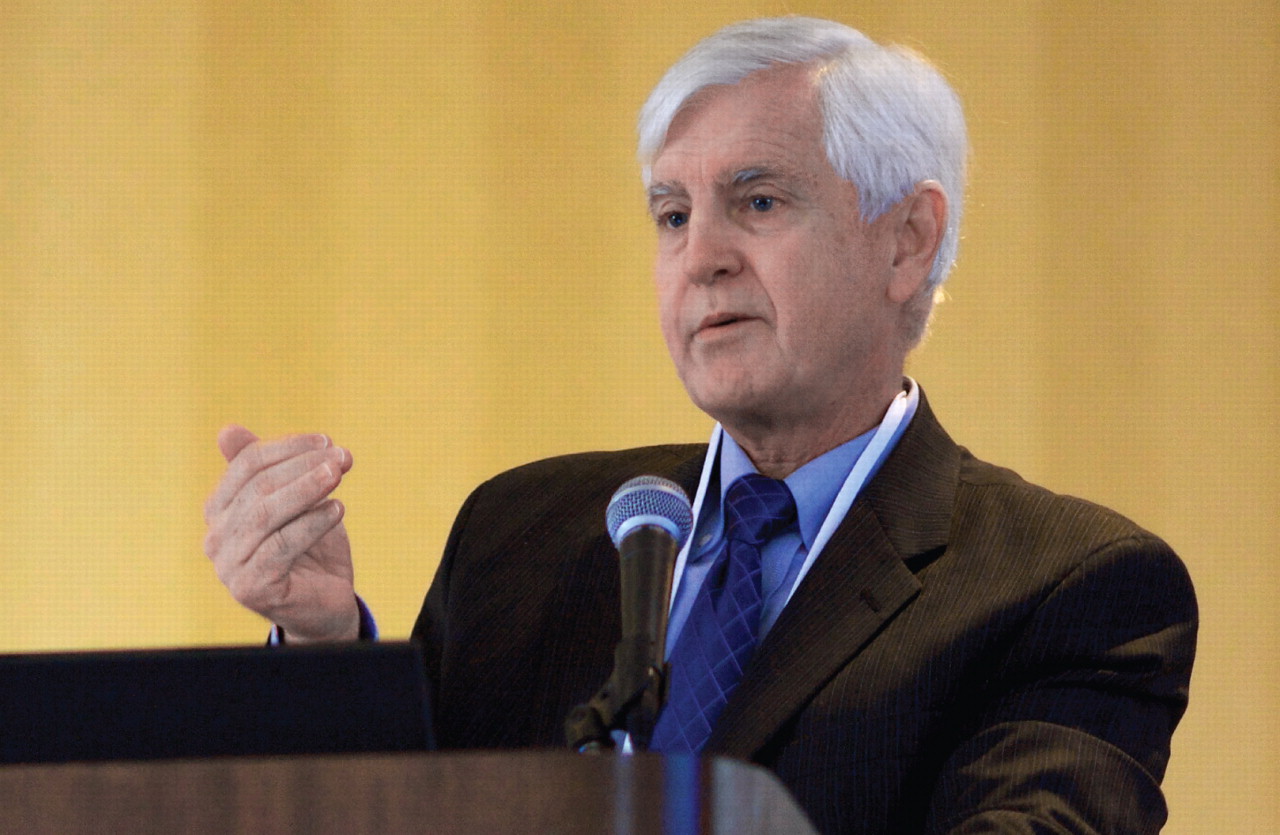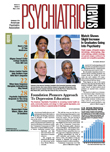A new model of teaching that integrates the best of the old“ apprenticeship” model of residency training with the most valuable aspects of the “competency” movement is required to restore professionalism to medicine and medical education, said Lawrence Smith, M.D., chief medical officer at Long Island Jewish Health System in New York.
Further, a renewed commitment by trainees and physicians to the“ ownership” of responsibility to a patient should be incorporated into a model of teaching that also accommodates a generation of trainees who do not want to sacrifice time with spouses and children.
Smith was addressing the annual meeting of the American Association of Directors of Psychiatric Residency Training (AADPRT) in New Orleans in March on the topic, “The Future of Residency education: Utility of the Core Competencies Model or Does the Sum of the Parts Equal the Whole?”
Smith surveyed the multiple forces that have transformed medicine and residency training in recent years and rendered the task of training directors more complicated than it was a generation ago: stricter program requirements for accreditation, a patient “safety” movement and litigation crisis that has made it harder to allow residents to treat high-risk patients, and an emphasis on cost-control and efficiency that has institutions trying to do ever more with ever less.
In the midst of this have emerged the “competency” movement in graduate medical education and a new “deconstructionist” trend in teaching, whereby the physician's identity is deconstructed into component tasks or competencies that can be tested.
At its worst, these trends have led to a loss of what Smith called“ the culture of medicine”—the sense of professional pride in being a doctor—and is producing young physicians and trainees who view being a doctor as “just a job.”
In response he called for a new model of training that integrates what is valuable about the competency movement with a reinvigorated professionalism. He especially emphasized the need for faculty and trainees to reclaim“ ownership” of the patient—a commitment to treat the patient, regardless of the hours required or the personal hardship or inconvenience it may entail.
“An integrated model would emphasize ownership of the patient as the benchmark against which all progress is measured,” he told program directors at the meeting. “In an attempt to be super safe and deconstructed, you can now pass through training and never be a physician who owns your patient.”
But at the same time, Smith said the future model of training must make room for residents who want to balance work with family life.
“Gen X is not going to accept the workaholic model of being a doctor,” he said. “If we think not being willing to work every waking hour makes you a bad doctor, that is our problem, not theirs. We have to welcome the next generation into our profession, and not as second-class citizens because they want to be home to see their children grow up and be husbands and spouses.”
Residency Becoming a Spectator Sport?
Smith contrasted an older model of apprenticeship training, under which residents typically worked extraordinary hours but were schooled in professional commitment to patients, with the task-driven environment of today's teaching centers in which residents in some specialties have little time at all for direct patient care.
“In the old model of surgery, when you went to the ER to evaluate a patient, you had a master clinician who could examine the abdomen better than any CAT scan, you made a judgment about surgery, you got the patient ready for it, and took care of post-op care,” he said. “When the patient was doing push-ups in his room three weeks later, he went home.”
Today, he said, it is not uncommon for surgery residents to see a patient for the first time 90 minutes before the operation without having participated in any of the presurgical deliberations, the resident observes the surgery with a video camera, the patient leaves the hospital 24 hours later, and all the postoperative complications are handled by the surgeon.
“It should be no surprise why every fifth-year surgical resident says [he or she does] not feel competent to do surgery,” he said. “This is why everyone wants to do a fellowship.”
Moreover, the patient-safety movement and fear of litigation have caused institutions to be reluctant to let trainees do clinical procedures they were expected to do a generation ago. “We have become obsessed with safety,” he said. “We have senior obstetric residents who have never done an unsupervised delivery.
“The safety movement is in danger of turning residency training into a spectator sport.”
Dialogue Needed About Work Hours
Pressed to say how he would integrate professionalism with the new demand for competency, Smith said training directors need greater flexibility to exercise their own judgment and be creative while still ensuring that residents meet requirements.
“I would not destroy the competency movement, but I would give people enormous freedom,” he said. “I trust residency directors, and I would give them the freedom to use creative systems of teaching and measuring and ask them to articulate them in ways that are not rigid.
“The competency movement is an intellectually honest attempt to say what the components are that make up the competent physician,” Smith said. “But I think we came up with mechanistic solutions that perhaps degraded it into” a system of check boxes.
He emphasized that in the frenetic effort to meet requirements and accomplish tasks, what has gone missing from training is time—time for residents to think, reflect on the patients they care for, and form collegial bonds with their fellow residents.
“If I were a hospital administrator, the argument I might listen to is that residency programs with time to reflect are likely to produce doctors who render patients much more satisfied with their care,” he said.
And how will training directors teach professionalism and“ ownership” of a patient while still honoring residents' desire for a balanced family life?
“It may be that hours aren't the stumbling block, but some modicum of control and predictability,” Smith said. “One of the solutions is to say to residents as a group, 'Some days patients do unpredictable things, and our image is that if you own that patient, you are going to try to seek closure to those crises. But we also understand that some days that 3-year-old is coming out of day care like it or not at 5:30 and [you have] got to have time to go off. As a group you should protect each other and transfer care and ownership. If as a group you take on that flexible model of ownership of the patient, we are all going to be happier.' ”
“I think neither side has gotten to that dialogue,” he said.▪

